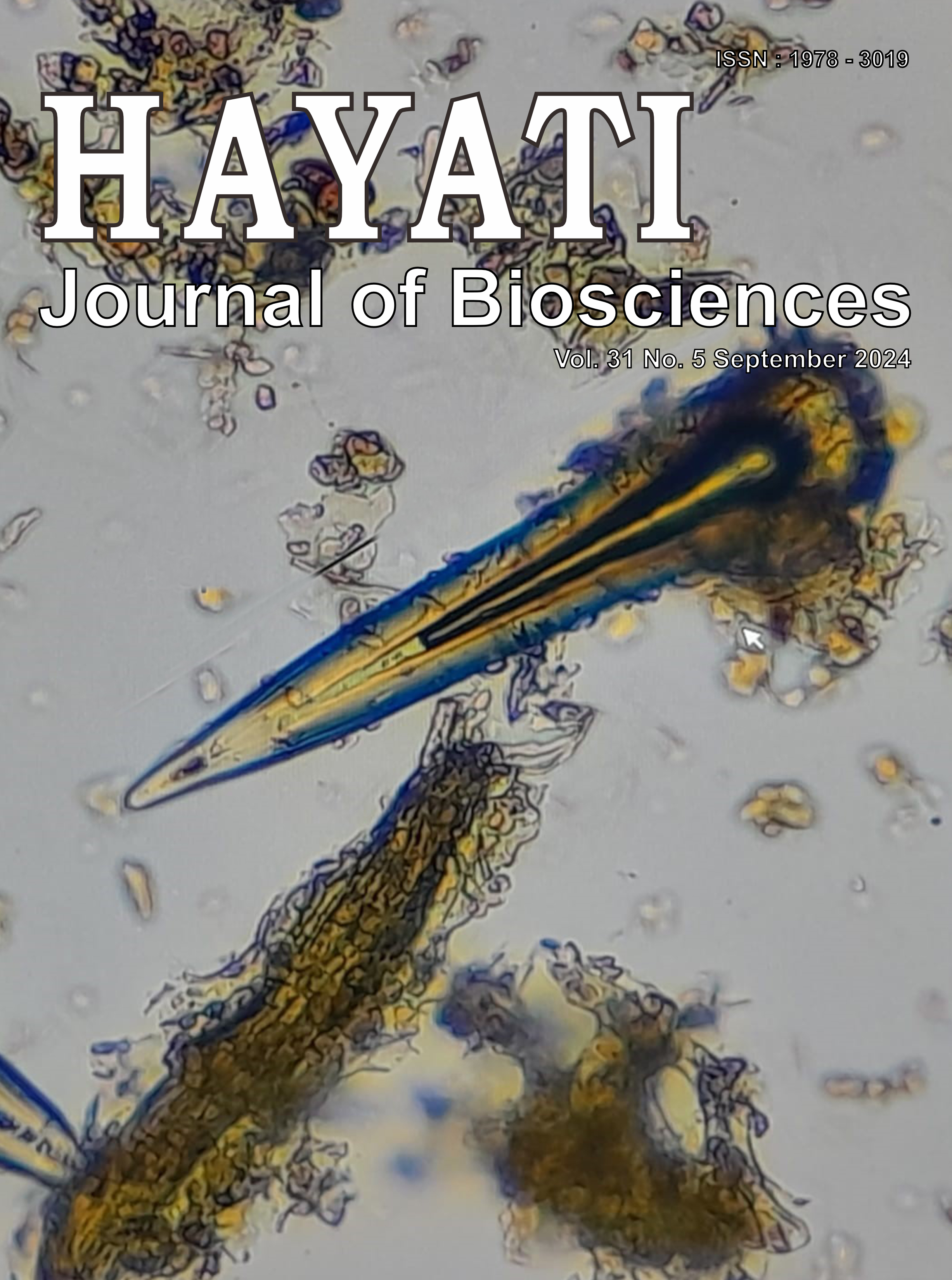The In Vitro and In Silico Study of α-glucosidase Inhibition by Kombucha Derived from Syzygium polyanthum (Wight) Walp. Leaves
Abstract
Kombucha is a fermented tea drink using a symbiotic culture of bacteria and yeast. This drink has been widely used to maintain blood sugar levels. Meanwhile, leaf boiled water of Syzygium polyanthum (Wight) Walp. has been used as an alternative medicine for diabetes mellitus in Indonesia. If this herb is made into kombucha, it may have higher antihyperglycemic activity than kombucha from tea leaves. However, there are no scientific reports of antihyperglycemic activity from S. polyanthum leaf kombucha by inhibiting alpha-glucosidase. This study aims to determine the activity and kinetics inhibition of S. polyanthum leaves kombucha against α-glucosidase. Samples were prepared at varying concentrations (12.5, 25, 37.5, 50 g/L), while phytochemical components in the products were identified, and the inhibitory activity as well as kinetics were comprehensively analyzed. In silico evaluations were conducted to further explore the inhibitory activity. The results showed that the products contained secondary metabolites such as flavonoids, saponins, and tannins. The inhibitory activity against α-glucosidase ranged from 81.05 to 89.41%. The inhibition mechanism was identified as uncompetitive, with a Michaelis-Menten constant (KM) of 0.1357 mM and a vmax value of 27.7008 U/ml minute. Several metabolites showed promising inhibition potential due to their strong binding interactions with α-glucosidase, including hydrogen bonding (H-bond), hydrophobic interactions, van der Waals forces, and electrostatic forces. Additionally, two metabolites, farnesol and α-pinene, were found to interact with other human proteins. These observations showed the potential of S. polyanthum leaves kombucha as a health-promoting beverage that might aid blood sugar control in diabetic individuals.
Downloads
Copyright (c) 2024 Sitaresmi Yuningtyas, Muhammad Alfarabi, Yunita Lestari, Harry Noviardi

This work is licensed under a Creative Commons Attribution-NonCommercial 4.0 International License.
HAYATI J Biosci is an open access journal and the article's license is CC-BY-NC. This license lets others distribute, remix, tweak, and build upon author's work, as long as they credit the original creation. Authors retain copyright and grant the journal/publisher non exclusive publishing rights with the work simultaneously licensed under a https://creativecommons.org/


















.png) IPB University
IPB University Department of Biology
Department of Biology The Indonesian Biological Society
The Indonesian Biological Society 

